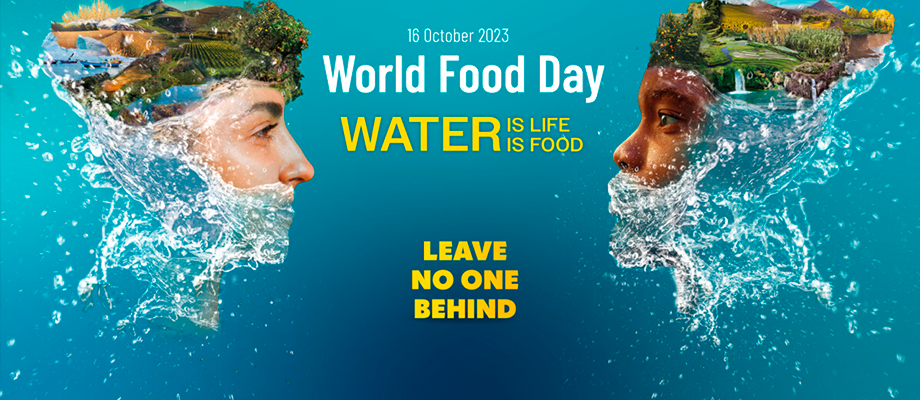World Food Day 2023: Addressing Water Challenges for Sustainable Investment in Agriculture

Rapid urbanization, climate change, and poor water management are leading to a decrease in per capita freshwater availability by 20% in recent decades. As the demand for food is projected to increase by 50 percent by 2050, there is an urgent need for informed policies and investments targeting sustainable water use.
The 2023 World Food Day is setting the stage for essential dialogues on water as the backbone of food security and sustainable development. Convening at FAO headquarters, the event emphasizes that water, accounting for 72 percent of global freshwater withdrawals for agriculture, is a finite yet vital resource.
A Complicated Flow: Key Areas of Concern
The conundrum of water management is becoming more intricate and pressing as years go by. According to FAO statistics, 2.4 billion people currently inhabit water-stressed countries, a majority of whom are smallholder farmers—a demographic that is central to agricultural productivity and food security.
Groundwater, a vital resource that constitutes 99% of the planet's liquid freshwater, is in a precarious state. Over-utilization and pollution are rampant, and traditional mechanisms like the construction of large dams often carry a steep price, both environmentally and socially.
To effectively grapple with these complexities, FAO recommends adopting a multi-pronged, integrated approach that leans heavily on nature-based solutions. These offer a sustainable and ecologically friendly approach to water management, contributing towards the eradication of poverty and hunger.
This aligns with the FAO's commitment to promoting sustainable integrated water resources management (IWRM), which aims to accelerate the achievement of SDGs. Government action is needed to produce more food with less water, making targeted investments in technologies, effective irrigation, wastewater treatment and reuse, and integrated soil-water management.
Equally significant in this scenario is the FAO’s WaPOR tool. Set to offer global data starting in July 2023, WaPOR is an innovative satellite-based system designed for the real-time monitoring of water consumption in agricultural settings. By supplying accurate, timely data, WaPOR can substantially aid governments and private sector entities in becoming more responsible water stewards. It can also help achieve equity in water access and fortify resilience to extreme weather conditions.
Future Steps: National Water Roadmaps and Investment Strategies
To accelerate the achievement of water-related objectives across all SDGs, FAO is supporting the development of National Water Roadmaps. These roadmaps aim to foster inter-sectoral coordination and are backed by concrete actions and commitments made at the UN 2023 Water Conference.
They serve as a guide for governments and stakeholders, highlighting the need for science and evidence-based policies bolstered by sufficient investment. Such investment not only helps in conserving water but also aids in maintaining its quality, thereby ensuring that the world moves towards a sustainable agrifood system.
By confronting the challenges of water scarcity and mismanagement, particularly through well-coordinated investments, it is possible to safeguard this essential resource for the future of food, people, and the planet, to leave no one behind.
More on World Food Day
